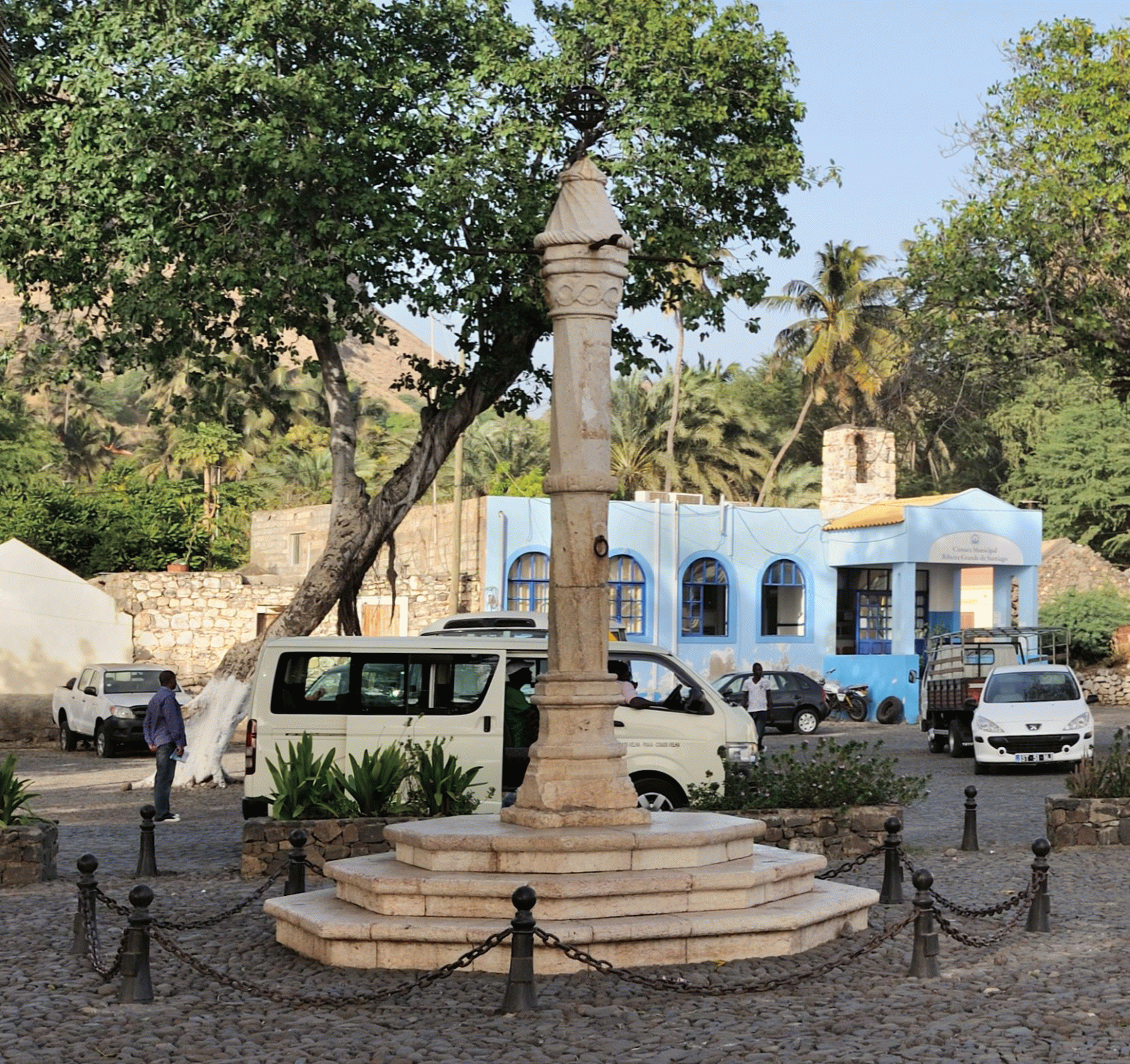Workshop
Cape Verde and the Atlantic: Crossroads of People, Goods and Capital Investments (1460–1610)
Organized by Carlo Taviani (Rome) in cooperation with Villa I Tatti – The Harvard University Center for Italian Renaissance Studies, the Kunsthistorisches Institut in Florenz, and the Forum Transregionale Studien, Berlin

Peroulinho (column), early 16th century, Cidade Velha (Pillory Square), Isle of Santiago, Cape Verde
© Cayambe, Wikipedia, under CC BY-SA 3.0
The seminar will explore two perspectives on the early modern history of Cape Verde and their entanglements. First, the historical links between Cape Verde, Africa and the Mediterranean. Second, the genesis of the trade and movement of goods, merchants, objects, enslaved people, and institutions from Cape Verde towards the Americas. Both perspectives have not been studied in detail, even less so their entanglements. Although the transatlantic routes from Cape Verde are a well-known subject, the history of their emergence in the early Cinquecento has not yet been deeply analyzed.
In this seminar, scholars will present new findings from often overlooked archives with focus on merchant communities such as Jewish and Italian. The conference will focus on a specific time-period: from the entrance of European merchants into Cape Verde until the first decade of the seventeenth-century (roughly 1460–1610). We will use an interdisciplinary approach, incorporating the fields of economic history, the history of art, and archaeology. Scholars will present papers on merchants, ivories, textile, maps, enslaved people, routes and communication corridors, economic institutions (contracts and practices), and relics. Scholars participating in the conference will take two methodological approaches. A first group will employ a wide-picture view, bringing together a diverse array of subjects such as slavery, creolization, trade routes and circulation of people and goods between West Africa and the Atlantic. A second group will focus on the archeology, the history of art and history of Cape Verde, in particular the early creolization of African, Portuguese and Genoese peoples, and on the connections between Cape Verde, the African continent and the Americas.
Downloads
28. – 29. Januar 2019
Cidade Velha, Isle of Santiago
Cape Verde
Hinweis
Diese Veranstaltung wird durch Fotografien und/oder Videoaufnahmen dokumentiert. Falls es nicht Ihre Zustimmung findet, dass das Kunsthistorische Institut in Florenz Aufnahmen, auf denen Sie erkennbar abgebildet sein könnten, für die Veranstaltungsdokumentation und Öffentlichkeitsarbeit (z.B. Social Media) verwendet, bitten wir um eine entsprechende Rückmeldung.


